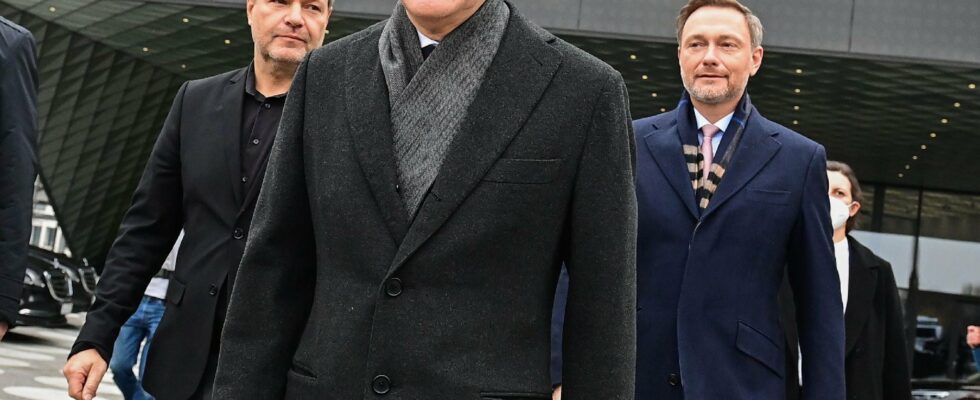This is a major and very rare political crisis. In Germany, the fragile government coalition of Social Democratic Chancellor Olaf Scholz exploded in mid-air. The heterogeneous German government coalition, which united social democrats and ecologists on the left with the liberals of the FDP on the right, was shattered following the dismissal on Wednesday November 6 of the Minister of Finance and leader of the liberals, Christian Lindner. The end of the Chancellor’s government was de facto recorded on Wednesday evening with the departure of all Liberal ministers.
The cause of this split lies in particular in the deep differences between the two camps on the budgetary and economic policy to follow. If left-wing leaders are in favor of reviving the stalled national economy through spending, the Liberals advocate social cuts and strict budgetary discipline. Europe’s largest economy is grappling with a serious industrial crisis and is worried about the repercussions for its trade and security of the election of Donald Trump as president in the United States.
Uncertainty over the 2025 budget
“We need a government capable of acting and which has the strength to take the necessary decisions for our country,” argued the Social Democratic Chancellor. Faced with “ultimatums” from his Minister of Finance, Olaf Scholz judged that there was no longer “sufficient confidence for continued cooperation”.
Deprived of a majority, Olaf Scholz still hopes to be able to hold out for a few months to lead a minority government and have a few pieces of legislation deemed a priority adopted, seeking majorities on a case-by-case basis. As for the 2025 budget, the preparation of which is at the origin of the current crisis, there is uncertainty. Failing adoption in Parliament, a minimum and reduced version could be applied from January.
The chancellor announced that he would pave the way for early elections in the country by submitting to a vote of confidence in mid-January, which he has every chance of losing. In this case, the vote, initially scheduled for September, could take place “at the end of March at the latest”, indicated Olaf Scholz. If elections were to be held tomorrow, the conservative opposition would come out on top with more than 30% of the vote according to polls and its leader Friedrich Merz would be the favorite to become chancellor. But he too would have difficulty forming a majority coalition, with the far-right AfD, lying in second place in the opinion polls.
“It’s not a good day for Germany, nor for Europe”
The divorce was recorded after a final day of talks organized on Wednesday to try to save the executive led by Olaf Scholz since the end of 2021. “It is not a good day for Germany, nor for Europe,” said lamented Foreign Minister Annalena Baerbock, another figure in the Green Party.
This political crisis occurs at a time of uncertainty and concern following the upcoming arrival in Washington of Donald Trump. A sign of this concern, French President Emmanuel Macron took the initiative of speaking with the German Chancellor as soon as the unpredictable businessman’s victory was achieved, to jointly affirm the need for a “more united, stronger, more sovereign in this new context. On Wednesday, the German and French Defense Ministers stressed the need for European cohesion after the election of Donald Trump. “We must strengthen our sovereignty, we must strengthen our unity,” called German Minister Boris Pistorius in a joint declaration following an urgently organized meeting in Paris.
Olaf Scholz hoped that the election of Donald Trump, a fan of protectionism and diplomatic confrontations, would force his coalition to close ranks. But the opposite happened. The FDP judged that the election in the United States made a change of economic course in Germany even more urgent.
The German Chancellor will try to allay the concerns of his European neighbors by going to Hungary this Thursday to a meeting of the European Political Community (EPC), made up of the 27 EU countries and their neighbors, from Turkey to Ukraine. It will be followed by an informal meeting of just the leaders of the Twenty-Seven, many of whom are already stunned by the victory of Donald Trump, inclined to engage in trade and customs battles with the Old Continent.
